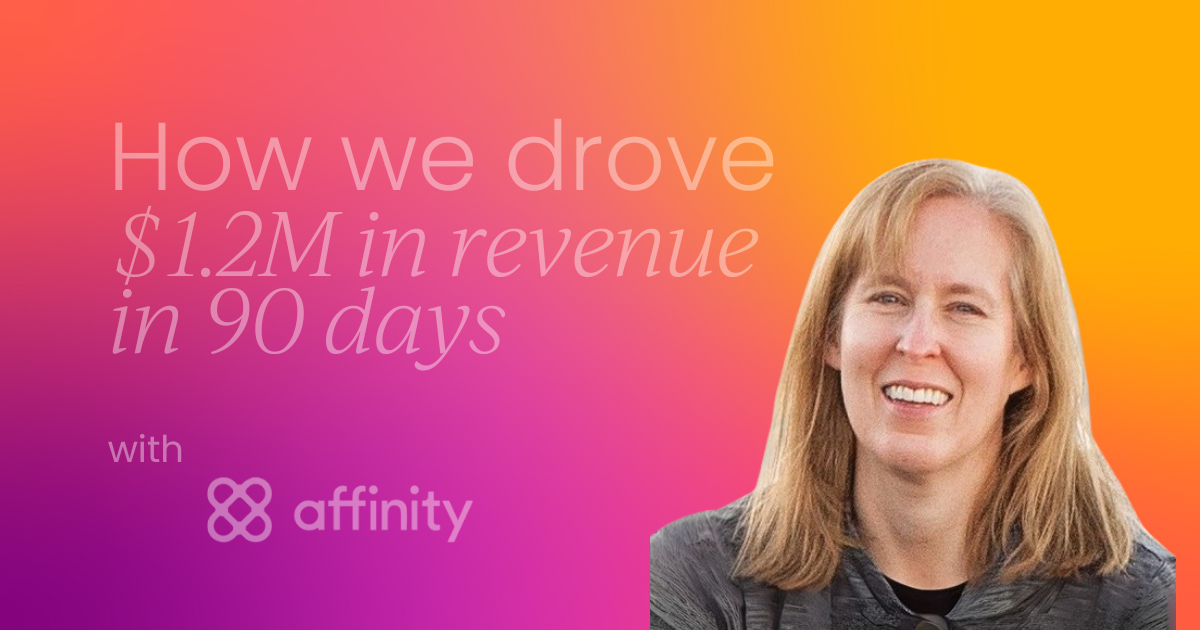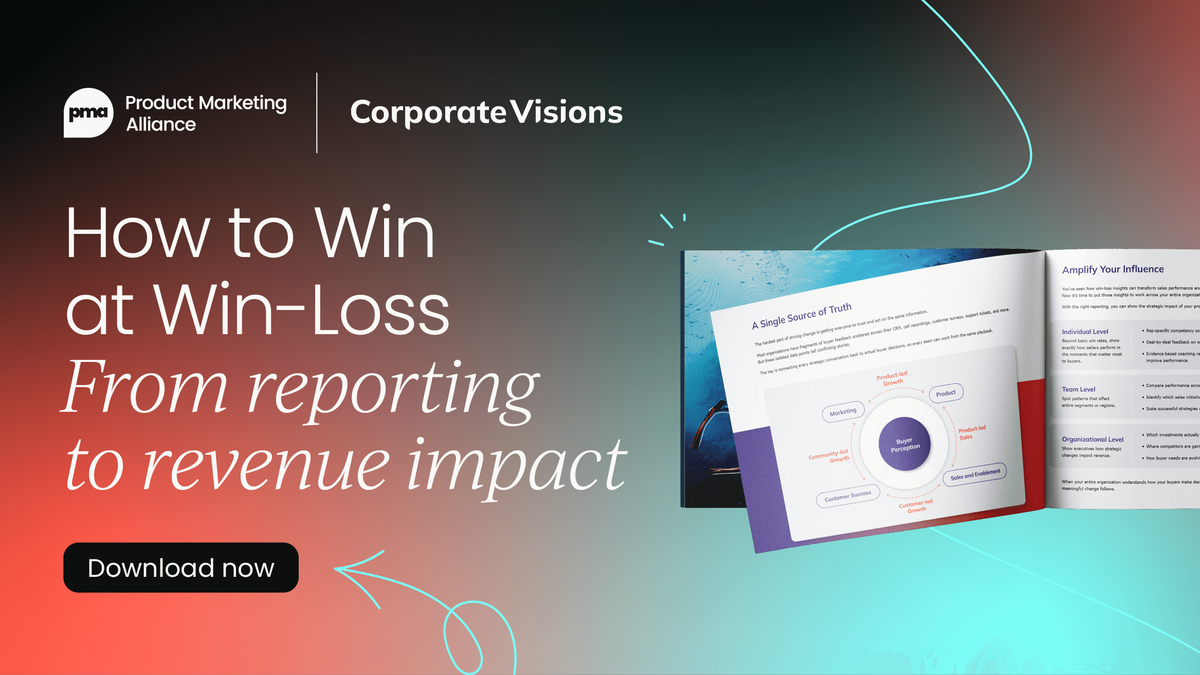A competitive intelligence career is all about helping companies stay one step ahead in their industry. It’s a forward-looking role with real influence, one that turns public signs into advantage. Plus, it pays, on average, $115,065 a year.
Here’s what it looks like.
Core responsibilities in competitive intelligence jobs
The day-to-day work of a competitive intelligence professional can vary depending on company size and maturity, but the core responsibilities are generally consistent across industries.
Competitor tracking
It’s about scanning many sources (websites, press releases, social media, review sites) and interpreting changes, like pricing shifts or executive hires.
In a joint study by Accenture and General Electric, 74% of enterprises report that rivals are already mining big data and machine learning for differentiation.
Battlecard creation
Battlecards translate competitor intelligence into tools that help sales teams win deals by understanding how their offering stacks up against competitors, and “teams that enable sales daily saw an 84% increase in competitive sales effectiveness.”
A good battlecard doesn’t just list features. It provides context, objection-handling strategies, and positioning guidance tailor-made to specific selling situations. CI professionals keep these updated continuously, based on real-world deal feedback and shifting market dynamics.
Market landscape analysis
This means part of your responsibilities is to position your company within the broader ecosystem, spotting emerging players, opportunities, and threats.
Competitive intel analysis provides the foundation for big strategic decisions, like a new market entry.
Win/loss analysis
Win/loss analysis is equally important. When deals are won or lost, competitive intelligence pros dig into the reasons why by talking to customers and analyzing sales data.
They also identify patterns, which can inform everything from messaging to roadmap priorities.
This is one of the most valuable yet underutilized aspects of CI.
Executive briefings
As a competitive intelligence professional, you’re often responsible for crafting executive briefings as well.
These might be weekly memos, monthly updates, or one-off reports in response to a competitor’s move.
The best CI teams don’t just dump data. They tell compelling, actionable stories backed by research and insight, highlighting opportunities and threats, and recommending actions.
A day in the life of a CI professional
A typical day in a competitive intelligence career is a mix of research, strategy, and collaboration.
You might start by scanning alerts for any competitor updates (product launches, executive moves, customer complaints) and flagging the relevant ones for your teams.
You could then spend part of the day working on a strategic report for a product team preparing to enter a new market or updating sales battlecards based on recent win/loss interviews.
You’re also likely to attend meetings across different departments. Maybe you’re helping sales prepare for a pitch against a key rival or sitting in on a roadmap review with the product team.
On other days, you might be preparing a presentation for senior leadership, summarizing what competitors are doing, what risks or opportunities you see, and what actions you recommend.
CI professionals need to respond quickly to competitive moves, but also think long-term: building scalable processes, updating frameworks, and developing long-lasting strategic narratives.
You’re juggling multiple stakeholders, tight deadlines, and a constant stream of new information.
Skills you need for a successful competitive intelligence career
Thriving in a competitive intelligence career requires a mix of analytical, strategic, and interpersonal skills.
Analytical thinking
“Without data, you’re just another person with an opinion.” – W. Edwards Deming
CI is rooted in analysis. You’ll need to evaluate competitor behavior, market trends, product shifts, and go-to-market tactics – and extract what matters.
It's not about having more data, but asking better questions of the data you have.
This means having good pattern recognition and the ability to separate what’s noise and what’s relevant information.

Strategic thinking
CI isn’t just for reporting, as it also informs high-impact decisions. For instance, if you’re interested in a competitive intelligence career, you’ll have to translate findings into recommendations for product, sales, or leadership.
That means seeing the big picture and understanding how competitive moves fit into broader market dynamics.
So, you need business acumen, the ability to plan scenarios, and the ability to plan long-term.
Communication and storytelling
Without context, competitive intelligence is just another dashboard.
You need to communicate insights clearly, compellingly, and with the right level of urgency – whether that’s a one-slide summary for the CEO or a battlecard for sales.
So, focus on developing your communication skills and your visual storytelling, and on tailoring insights to different audiences.

Collaboration and influence
Competitive intelligence is often cross-functional. You’ll partner with product marketing, sales, strategy, and leadership teams.
Your ability to build trust, understand priorities, and influence decision-making is critical, so make sure you’re able to manage and influence stakeholders, as well as develop your empathy and listening skills.
Curiosity
Markets move fast. So, if you want to have a competitive intelligence career, you must be able to ask questions other people don’t think to ask – and dig until you find the answers.
This sense of curiosity will help you connect the dots, spot patterns, and anticipate market changes before they happen.
You’ll need proactive research habits and have a passion for learning and experimenting.
Tool proficiency
While competitive intelligence isn’t purely technical, being comfortable with CI platforms (like Crayon, Klue, or Kompyte), plus broader tools like Tableau, Salesforce, or Notion, can make you faster and more effective.
AI is a huge help for that.
According to an Evalueserve survey, “AI-enabled monitoring improved knowledge relevancy by 90%, better supporting the needs of CI, Marketing, Sales, and Strategy teams,” who are then able to “reduce redundancies, improve the quality of information they’re using, and improve their business functions.”

Common job titles in CI
Titles in competitive intelligence can vary depending on company size, maturity, and team structure.
In smaller orgs, CI might be one part of a broader role, often sitting within product marketing or strategy. In more mature companies, it may be a standalone function with its own leadership and resources.
At a more entry-level
You’ll often find titles like Competitive Intelligence Analyst or Market Research Associate, which tend to focus on data collection, competitor tracking, and internal documentation.
This is where foundational skills are built, such as learning how to monitor competitors, manage CI tools, and produce high-quality reports. Analysts often work under a CI manager or head of marketing and are deeply involved in data gathering and research.
As you progress, you may start owning entire CI programs and step into roles like Competitive Intelligence Manager or Strategic Insights Manager. At this level, you're responsible for more strategic initiatives, collaborating across departments, and delivering higher-impact insights.
In addition, you might manage a win/loss initiative, launch a competitive portal, or run a monthly intelligence newsletter. You’ll likely be responsible for training internal teams and being the go-to for competitor-related questions.
For those who continue advancing
Titles like Director of Competitive Intelligence or Head of Market Insights become common. These positions are focused on program leadership, cross-functional strategy, and executive reporting, as your job shifts toward vision and strategy.
You’re not just responding to competitive threats, you’re building a proactive CI function that influences product roadmaps, GTM strategies, and executive planning cycles. You may also lead a team, manage budgets, and select the tools that support your CI infrastructure.
At the highest level, CI can evolve into broader roles such as Vice President of Strategy or Chief Strategy Officer, where competitive intelligence is just one of several strategic elements in your portfolio, and your role is more about shaping the company’s future.
Competitive intelligence becomes just one pillar of a larger strategy role, often intersecting with corporate development, investor relations, and long-term planning.

Industries hiring for CI roles
You can have a competitive intelligence career in a wide range of industries, especially where market dynamics, innovation, and strategic decision-making are crucial.
Here are a few:
- Tech companies: They were early adopters because of the rapid pace of innovation and aggressive market competition. In SaaS, where product updates are frequent, CI plays a critical role in helping companies position themselves effectively and close deals faster (as well as figure out the right price).
- Pharmaceuticals and life sciences: Companies track competitor drug pipelines, clinical trials, regulatory milestones, and even patent expirations. These insights can shape research and development investment and go-to-market timing.
- Financial services: They leverage CI to understand market shifts, competitor pricing, and changes in regulatory environments. In banking, insurance, and fintech, CI often intersects with risk management and customer experience.
- Consumer goods: Companies use CI to monitor retail pricing, customer sentiment, packaging trends, and seasonal campaigns. These insights feed into everything from advertising to supply chain planning.
- Consulting: These roles involve working across industries, delivering custom research projects, and supporting executive decisions.
Competitive intelligence salary
Compensation in competitive intelligence can be very attractive, particularly in fast-growing industries like tech, biotech, and finance.
Typically, the more years you work, the higher the amount you earn on average, as found in our Competitive Intelligence Salary Report.
In fact, there’s a clear increase in pay between those who’ve worked in CI for more than five years, and those who’ve been performing the job for less than that. For base salary, it’s 41.8% higher, and for total compensation, it’s 46.4% higher.
And, as we mentioned at the start of the article, CI professionals are earning, globally, an average base salary of $115,065. North America offers the highest compensation with an average base salary of $149,034, which is $62,643 more than CIs in Europe.
Director-level roles are at the top of the salary scale for a competitive intelligence career, earning an average salary of $171,077 in North America.
For a more detailed breakdown of competitive intelligence salaries, get your free copy of our report.
In short
A competitive intelligence career offers a unique blend of research, strategy, and influence. Whether you’re just starting out or aiming for a director-level role, CI gives you the opportunity to shape key decisions across sales, product, and executive teams.
Get your free copy of our win-loss ebook to transform your win-loss program from a reporting function into a strategic force that drives revenue.









.png?v=985722afdb)